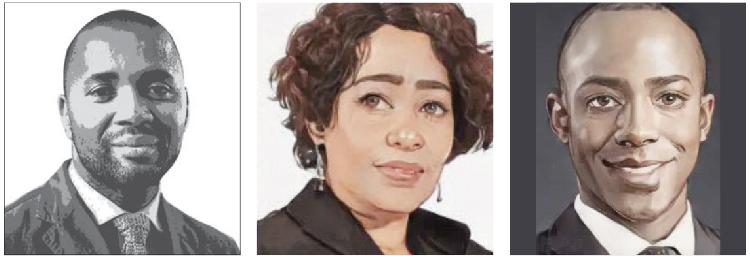Africa-Press – Namibia. ALFREDO TJIURIMO HENGARI, INGE ZAAMWANI-KAMWI and JAMES MNYUPE
THE BASIC ASSUMPTION is that any journalist or analyst, the novice and the seasoned, would understand the basics of foreign policy and the prosperity nations derive from diplomacy.
Unfortunately, some Namibian journalists, and worse, editors, are an exception to the rule and provide unreflective, naive and downright trivial commentary about the external diplomatic missions of the head of state.
They have constructed a problem out of the president’s participation in international affairs. Hopelessly sensational editorials and shoddy articles are dedicated to the president’s external missions.
Curiously, these journalists and analysts are not surprised to see that when the president is at the Commonwealth Heads of Government Meeting in Rwanda, or the African Union Summit in Ethiopia, he is interacting with no less than 50 heads of governments.
Similarly, when the president is delivering a statement at the annual September meetings of the United Nations General Assembly in New York, he is in the company of more than 100 heads of state and government.
Therefore, a need for clarification, if not education, is necessary about the president’s diplomatic engagements.
‘HIGH’ AND ‘LOW’ POLITICS
The president undertakes different types of missions. Some are about the ‘high politics’ of statecraft as security and survival; others are about the ‘low politics’ of trade, social affairs and commerce.
When the head of state responds to multilateral or bilateral invitations to participate in state visits or summits, these are first and foremost considered carefully in terms of the national interest and what Namibians stand to gain.
These missions are undertaken in light of the fact that the president is constitutionally vested with a variety of duties and executive powers, including negotiating treaties with foreign governments to advance the national interest.
As a matter of fact, with the intensification of issues in the international arena, president Geingob declines many invitations or delegates them to other key officials, including the vice president, the prime minister or the deputy prime minister.
On occasions, if possible, the president participates virtually. In some instances, Namibia’s participation might not be deemed necessary.
However, for the sake of the curious journalist and analyst, it is necessary to note that there are key multilateral or bilateral platforms where Namibia’s voice at the highest level is crucial in advancing the national agenda of prosperity and poverty eradication.
Namibia is a leading country in the African Union Peace and Security Council, AU committees on reform of the UN Security Council, including education, and the Africa renewable energy initiative.
As a UN member, deriving obvious benefits through the UN system, Namibia is expected to participate in key summits that affect our interests, and to take decisions on the future of humanity.
Moreover, Namibia is a founding member of the Oceans Panel, whose work focuses on ocean sustainability.
President Geingob is currently deputy chairperson of the SADC Organ on Peace, Defence and Security Cooperation and will assume the role of chair next month.
ECONOMIC DIPLOMACY
As per the Constitution, the president interacts and negotiates agreements with foreign governments.
Namibia is not an island. Our socio-economic development and prosperity depends on the strength of our global presence and economic partnerships.
The development that accrues is of benefit to all Namibians, including journalists.
Since assuming office, president Geingob has opened up what has largely been the arcane world of diplomacy to ensure that Namibians and journalists understand the president’s activities in the province of foreign policy.
Consistent with transparency and accountability, regular press releases and updates are provided during these missions.
For the past two decades, economic diplomacy has assumed an increasing role in Namibia’s foreign policy.
Importantly, with the commodity crisis, recurrent droughts and Covid-19, the Geingob presidency has, since 2015, prioritised economic diplomacy as a crucial thrust in Namibia’s interactions with the outside world.
Certain missions focus on deepening commercial interests, investment promotion and opening doors for Namibian products and services.
This is particularly important for our small and medium enterprises (SMEs), which need bilateral agreements to enter certain markets.
Through the president’s economic diplomacy, Namibia has unlocked benefits that will contribute to Namibia’s prosperity. In the past 16 months alone, Namibia has attracted tangible investments in energy, tourism and logistics.
Namibia is now recognised as one of the clean energy superpowers with planned investments of around US$10 billion for a green hydrogen and ammonia facility in the //Kharas region.
When concluded, this will be the single largest FDI in Namibia’s history.
After the World Economic Forum, the government received an unsolicited offer for a joint venture to create a continental manufacturing hub for green industries.
Following extensive interactions between president Geingob and the emir of Qatar in February 2022, the Qatar Investment Authority, with assets under management in excess of US$300 billion, visited Namibia in May 2022, and expressed interest in investing in transport and logistics related infrastructure, tourism and agriculture.
MAKING IT COUNT
Through the Qatar Investment Authority-backed Kasada Capital Management, Qatar recently acquired Hotel Safari through a $2,6 billion facility granted by the IFC.
On the margins of the June 2022 Commonwealth Summit, president Mokgweetsi Masisi pledged to president Geingob to increase cargo volumes through Walvis Bay. Jobs will be created in the process.
The Presidency encourages journalists and analysts to acquaint themselves with diplomacy and foreign policy in order to better inform the public about the obvious benefits that accrue to citizens as a result of the president’s engagements.
Namibia is committed to do more with less and to optimise its diplomatic footprint across the five continents by placing greater emphasis on peace, security and economic interests, as embodied in the Policy on International Relations and Cooperation.
Consistent with the national interest, president Geingob will continue to lead the pace at which Namibia engages with other nations and institutions.
* Alfredo Tjiurimo Hengari, Inge Zaamwani-Kamwi and James Mnyupe are advisers to president Hage Geingob
For More News And Analysis About Namibia Follow Africa-Press






